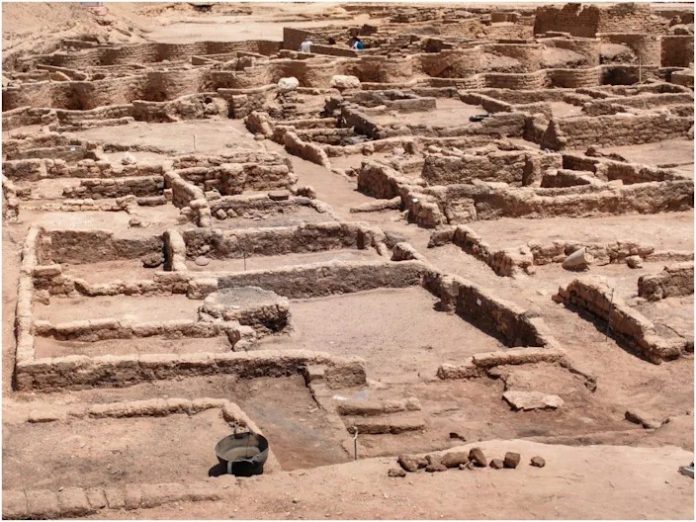Archaeologists have discovered what is believed to be the largest ancient city ever found in Egypt, hailing the discovery as one of the most important finds since Tutankhamun’s tomb.
Dubbed ‘the lost golden city’ by Egyptologist, Dr Zahi Hawass, the site was unearthed near Luxor, home of the Valley of the Kings, which lies 300 miles south of Cairo, the capital of Egypt. The city was known as the Rise of Aten, the archaeology team said.
As reported by the Guardian, the team said in a statement: “The Egyptian mission under Dr Zahi Hawass found the city that was lost under the sands.
“The city is 3,000 years old, dates to the reign of Amenhotep III, and continued to be used by Tutankhamun and Ay.”

The archaeologists also said that Betsy Bryan, Professor of Egyptian art and archaeology at Johns Hopkins University, hailed the find as the “second most important archeological discovery since the tomb of Tutankhamun.”
The team said that the city has been “untouched for thousands of years, left by the ancient residents as if it were yesterday.”
The team began excavations last year in September, beginning between the temples of Ramses III and Amenhotep III. Hawass said that many “foreign missions” have searched for this ancient city before, but had been unsuccessful.
After seven months of excavations and searching, the team unearthed the city and have so far found several neighbourhoods, with 10 feet high walls that are still intact. They even found a bakery that has ovens and storage pottery.

“Within weeks, to the team’s great surprise, formations of mud bricks began to appear in all directions,” the team’s statement read of the unearthing.
What they unearthed was the site of a large city in a good condition of preservation, with almost complete walls, and with rooms filled with tools of daily life.
Other valuable ancient items have been discovered in the city, too, including jewelry, pottery, scarab beetle amulets, and mud bricks with the seals of Amenhotep III.

Known as Amenhotep the Magnificent, he was the ninth Pharoah of the 18th dynasty, and his reign was known as a time of splendor, style, and riches wherein Egypt reached new levels of artistry and international power.
This could just be the surface of further finds, according to the team, who also discovered a collection of tombs via “stairs carved into the rock.”
“The mission expects to uncover untouched tombs filled with treasures,” the team’s statement read.

Meanwhile, Bryan hopes that the city will “give us a rare glimpse into the life of the Ancient Egyptians at the time where the empire was at his wealthiest.”

